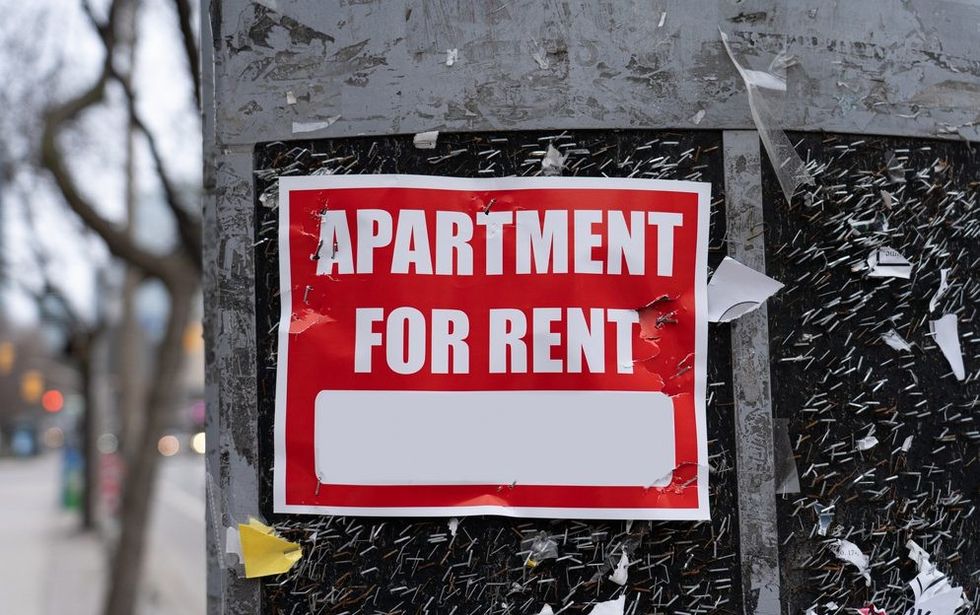Ontario’s housing market has seen better days for prospective tenants and (would-be) homebuyers.
While rent prices dropped in large urban centres like Toronto not long after the onset of the pandemic, they’ve climbed back to the sky-high levels of pre-COVID times. Meanwhile, high home prices, coupled with climbing interest rates, mean buying a property remains a pipe dream for many.
And if you’re a member of the BIPOC or LGBTQ2S+ communities, the province's daunting housing market is even more of a challenge.
Those in the BIPOC and LGBTQ2S+ communities are disproportionally impacted by the housing affordability crisis thanks to higher barriers to housing attainment due to historically discriminatory practices and social injustices that are still being perpetuated in today's housing market.
A telling new report from the Ontario Real Estate Association (OREA) reveals a loud and clear message: discrimination is alive and well in Ontario’s rental process. According to Fighting for Fair Housing, a report that examines diversity, equity, and inclusion in housing, a majority of both consumers and realtors believes that the province’s rental process is riddled with discrimination.
In total, 93% of Black realtors and 60% of all consumers surveyed believe discrimination exists in the rental process, according to research conducted in partnership with Ipsos. In fact, the sad reality is that four in 10 realtors say they’ve seen a rental deal fall through due to discrimination.
“There is a saying in real estate: today’s renters are tomorrow’s homeowners. For disadvantaged communities who have a hard enough time finding a great rental in a thriving community because of all the obstacles they face along the way, the dream of home ownership is just that -- a dream,” said 2022 OREA President Stacey Evoy. “We cannot hope to solve Ontario’s housing affordability crisis without addressing the systemic racism that undermines fair and equitable access to homes across the housing spectrum.”

Through research and consultations with Brokerages, REALTORS®, government officials, regulators, consumers, sector-related organizations, and Ontarians, the Fighting for Fair Housing report makes 19 recommendations to eliminate racism and inequality in real estate and housing. These recommendations include:
- Advocating for a review of Ontario Residential Tenancies Act (2006), with the goal of improving access to affordable homes for disadvantaged communities
- Reducing government-imposed costs on new rental projects, including duplexes, triplexes, and walk-ups
- Building 99,000 community housing units over the next decade, to clear the current backlog and accommodate future growth
- Encouraging expansion of affordable homeownership programs for disadvantaged communities, including rent-to-own programs
“As the rising cost of housing and lack of supply continue to push prospective buyers out of the market, homeownership remains out of reach for many -- and disadvantaged communities are at risk of falling even further behind. Building more homes alone isn’t going to improve accessibility to housing for BIPOC and LGBTQ2S+ communities,” said Davelle Morrison, Broker at Bosley Real Estate Ltd. and Chair of OREA’s Presidential Advisory Group on Diversity, Equity, and Inclusion. “As professionals in the industry, we have a unique opportunity to help more people in our province find a place to call home. The Ontario Government also has a key legislative role to play, especially when it comes to increasing equity and reducing discrimination in Ontario’s rental market or offering new, affordable ownership programs.”
In 2020, OREA struck the Presidential Advisory Group (PAG) on Diversity, Equity, and Inclusion (DEI) to better understand, address, and dismantle systemic racism in Ontario’s real estate and housing sectors. Through this work, the PAG has identified three areas for action that seek to change policy, perceptions. and attitudes around sector systemic racism through education, advocacy, and research.
Within organized real estate, one early achievement in this regard is the addition of a discrimination provision within the new Trust In Real Estate Services Act (TRESA) Code of Ethics, which explicitly requires compliance with the Ontario Human Rights Code, says OREA. "This change is a direct result of the PAG’s work and recommendations," reads the report. OREA says it will also be taking steps to review internal governance structures, board selection processes, policies, and more in order to increase BIPOC in leadership positions within real estate associations.
While this marks progress, clearly we have a lot more work to do.
The housing affordability crisis is only growing in Ontario and across the country. And the proof of it disproportionally affects disadvantaged communities is in the numbers (which, must be noted, were from pre-pandemic times). According to 2018 Statistics Canada data, in Ontario, 72% of those who are not a visible minority own their homes, as compared to 43% of black respondents, 50% of Indigenous respondents, and 67% of other visible minorities who own homes. Similarly, 71% of heterosexual persons are homeowners, whereas only 47% of those who identify as homosexual or bisexual are homeowners, highlights OREA.
The hope is that the report serves as a hard-hitting eyeopener for everyone: realtors, buyers, sellers, and decision makers. It hasn't taken long for the industry to weigh in. This morning, Tony Irwin, President & CEO Federation of Rental-housing Providers of Ontario (FRPO) took to LinkedInn and Twitter to stress that FRPO "members condemn racism and discrimination of all forms, and we remain committed to inclusive housing solutions that work for all," accompanied by a larger statement.
Eyeopener, reminder, terrible realty -- however the report strikes people, let's hope that most of all it serves to inspire some much-needed change in the industry.





















